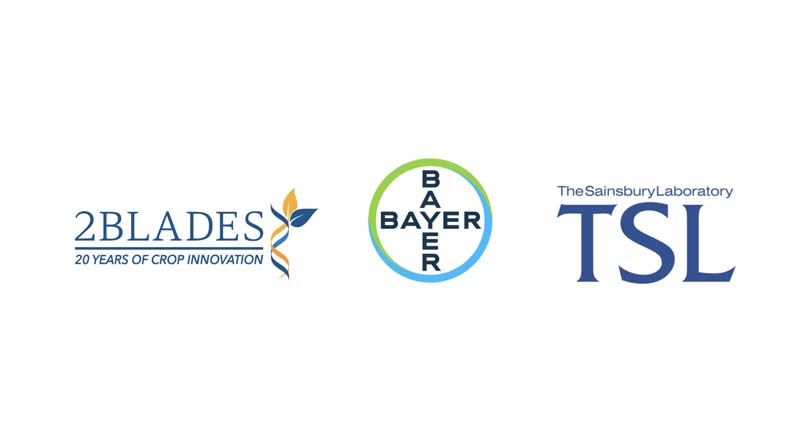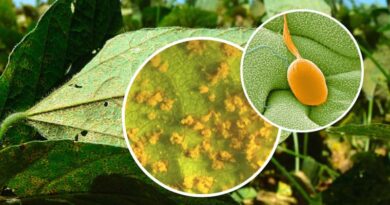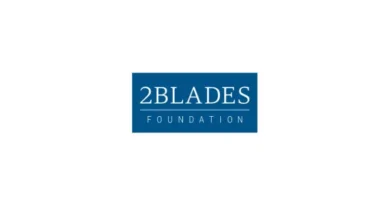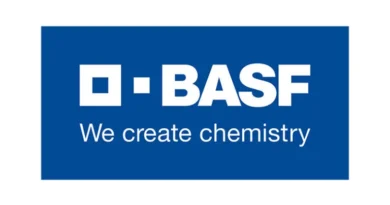2Blades Delivers on Project with Bayer Crop Science In Effort to Combat Asian Soybean Rust
The joint collaboration has focused on identifying novel sources of genetic resistance to Asian soybean rust (ASR), the leading cause of crop losses in Brazil and other soy-producing countries. The collaboration included partners at The Sainsbury Laboratory (Norwich, UK) and the Universidade Federal de Viçosa (Minas Gerais, Brazil).
16 February 2024, UK: 2Blades announces that it has successfully delivered on goals in a project launched in 2018 and extended in 2023 with Bayer Crop Science to identify resistance genes against Asian Soybean Rust (ASR). The project also involved partners at The Sainsbury Laboratory (Norwich, UK) and the Universidade Federal de Viçosa (Minas Gerais, Brazil). This achievement marks the successful completion of the collaboration, paving the way for Bayer to advance new targeted strategies for controlling and combating this destructive disease.
“Asian soybean rust is one of the most significant threats to soybean production globally,” said Ty Vaughn, Head of Plant Biotechnology for Bayer Crop Science. “The successful work that we’ve been able to accomplish with 2Blades will allow us to bring the solutions that growers need to farms more quickly.”
Asian soybean rust is a fast-moving disease caused by the airborne fungus, Phakopsora pachyrhizi, that can cause rapid crop losses of up to 90% within just 3 weeks of initial infection. ASR thrives in tropical regions and is the leading cause of soybean disease across the large soy production areas of Brazil, causing crop losses of more than US$ 10 billion since 2001. While fungicides have historically been used to combat P. pachyrhizi, the pathogen is rapidly adapting and building tolerance to these chemical controls.
In search of more effective measures against ASR, 2Blades and Bayer Crop Science sought to identify novel sources of genetic resistance for sustainable and environmentally friendly protection from ASR. In addition to identifying resistance genes, 2Blades’ scientists achieved major advances in understanding the molecular complexity of P. pachyrhizi, including assembling its complete genome sequence. This knowledge helps to ensure durability of resistance and complements Bayer’s work to provide various modes of action against ASR for effective, sustainable solutions to soybean farmers in the US and Brazil.
“This milestone is a testament to what can be achieved through collaboration and a shared commitment to advancing new, innovative approaches against major crop diseases like ASR,” stated Kamil Witek, Group Leader for 2Blades at The Sainsbury Laboratory in Norwich, UK. “Not only were our partners at Bayer a seasoned and dedicated team that made the effort very positive and productive, the team led by Professor Sergio Brommenschenkel at Universidade Federal de Viçosa brought significant strengths in tropical legume genetics and first-hand knowledge of soybean cultivation in Brazil. The excellent delivery-focused work carried out by the 2Blades Group exemplifies the value of embedding a translational research team at The Sainsbury Laboratory, a world-leading institute for fundamental and applied scientific research on plant-pathogen interactions.”
“We’re thrilled to contribute to this important milestone, connecting laboratory breakthroughs to practical solutions that protect global soybean yields. Our collaboration with 2Blades and industry players is instrumental in translating such discoveries into tangible, real-world applications and ensure a more resilient future for our food sources,” commented Nick Talbot, Executive Director of The Sainsbury Laboratory in Norwich, UK.
2Blades retains rights to these discoveries for use in programs for smallholder farmers in low-income, food-deficit countries. In 2023, 2Blades launched a program to help African growers protect their soy crops against ASR.
Also Read: Freight subsidy to promote agri products export from India
(For Latest Agriculture News & Updates, follow Krishak Jagat on Google News)















